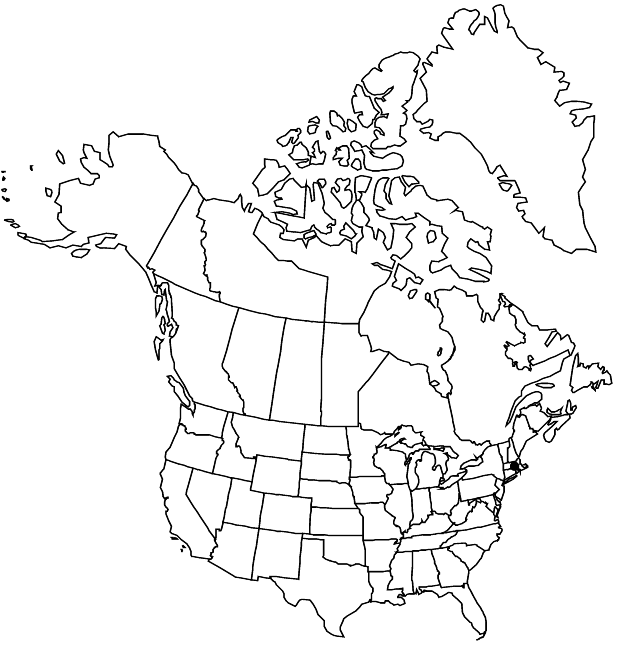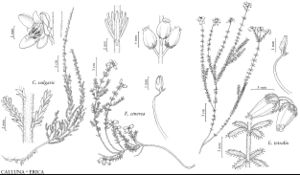Erica cinerea
Sp. Pl. 1: 352. 1753 ,.
Plants ± erect, 15–30 cm; twigs of current season green, with short, stiff hairs, older twigs brownish, glabrescent. Leaves in whorls of 3; petiole 0.1–0.3 mm; blade linear-lanceolate, flat to compressed-triangular in cross section, 2.5–5 × 0.3–0.6 mm, margins strongly revolute, sparsely prickled, surfaces glabrous. Inflorescences terminal racemes, ellipsoid, (1–)2–4(–10) cm. Pedicels 2–3 mm, shortly hairy. Flowers: calyx lobes deltate, 2.5–3 × 0.8–1 mm, margins denticulate, apex subacute, glabrous; corolla bright reddish purple, campanulate, 5–6 mm, lobes broadly deltate, 0.5 mm, apex rounded; stamens 10; filaments 3 mm; anthers awned, ca. 0.7 mm, awns 2, basal, 2–3-fid, 0.2–0.3 mm; ovary glabrous; style ca. 4 mm; stigma slightly exserted, slender, capitate. Capsules 1–2 mm, glabrous. Seeds obovoid, 0.7 × 0.4 mm, finely reticulate. 2n = 24.
Phenology: Flowering late spring–summer.
Habitat: Maritime grasslands
Elevation: 0-50 m
Distribution

Introduced; Mass., w Europe.
Discussion
Erica cinerea was naturalized under planted pines on Nantucket Island, with records dating from 1878 to 1906; it has not persisted.
Selected References
None.
